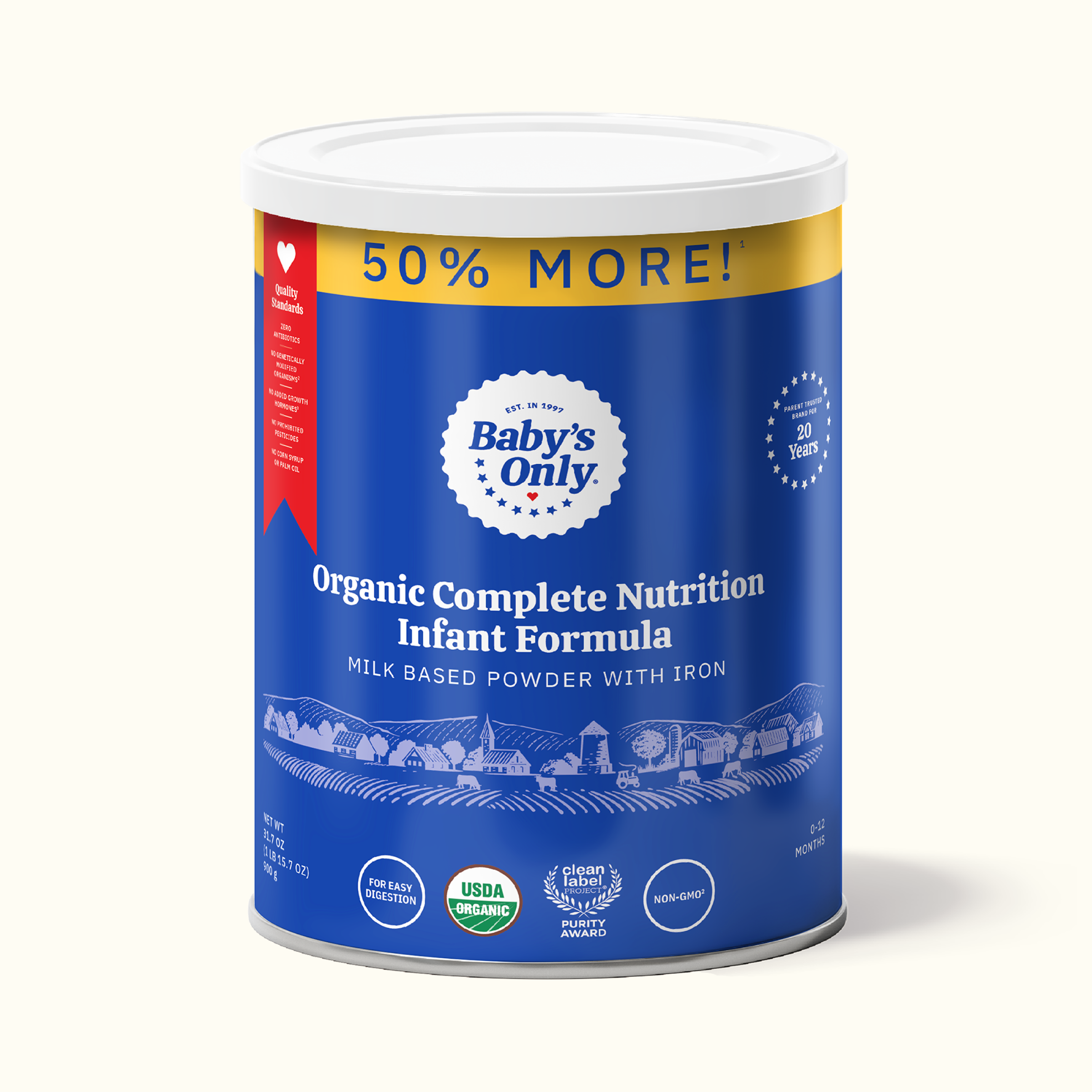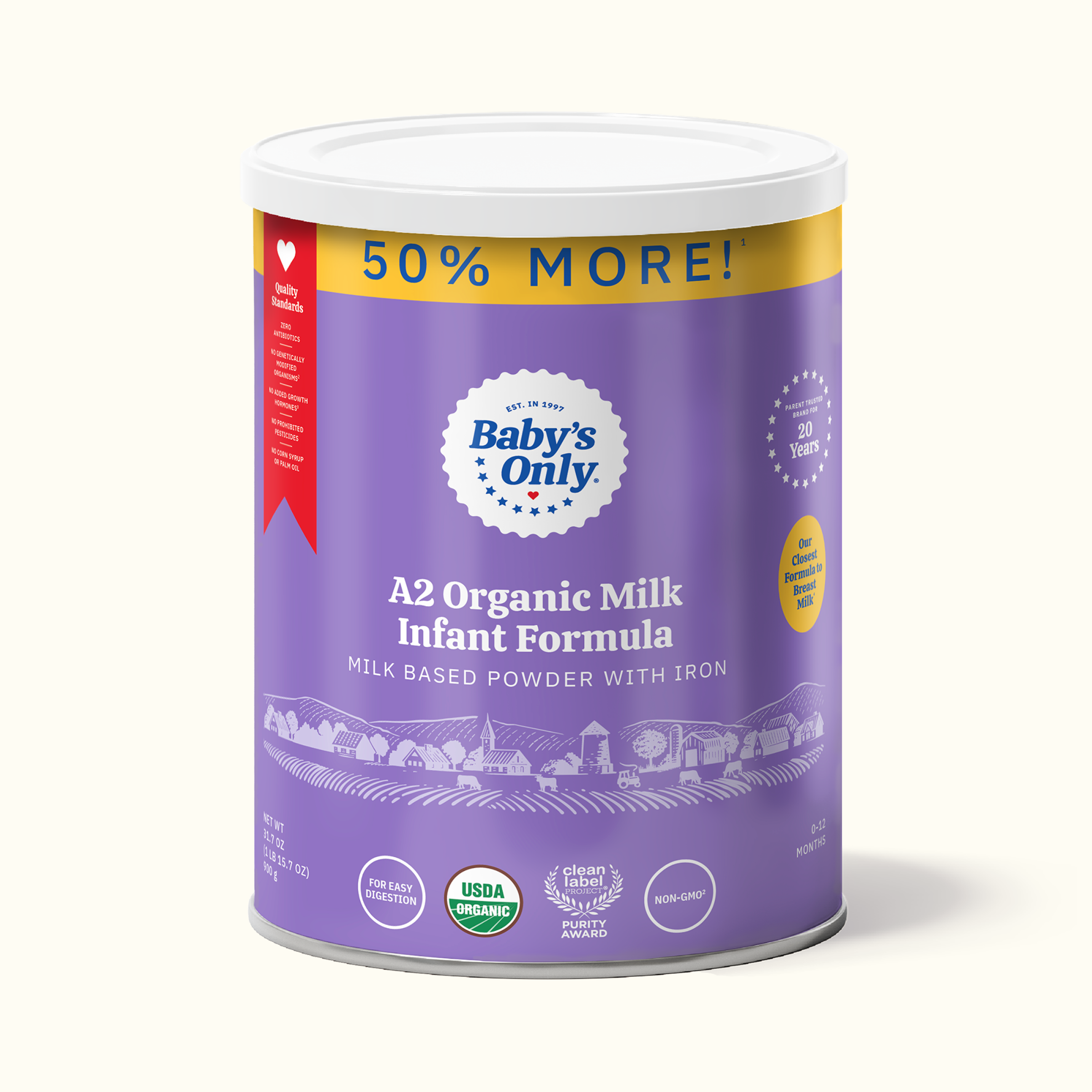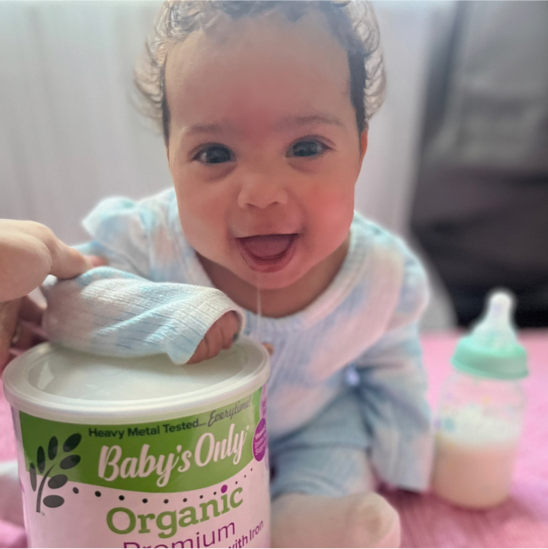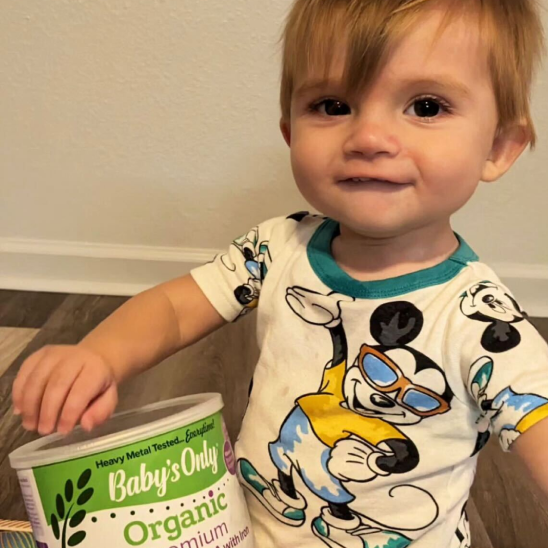
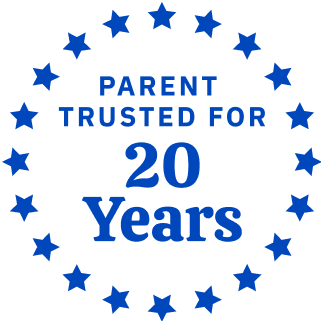
Organic formula for all
Organic formula
for all
Explore our products and best sellers—save 15% on recurring orders when you subscribe!
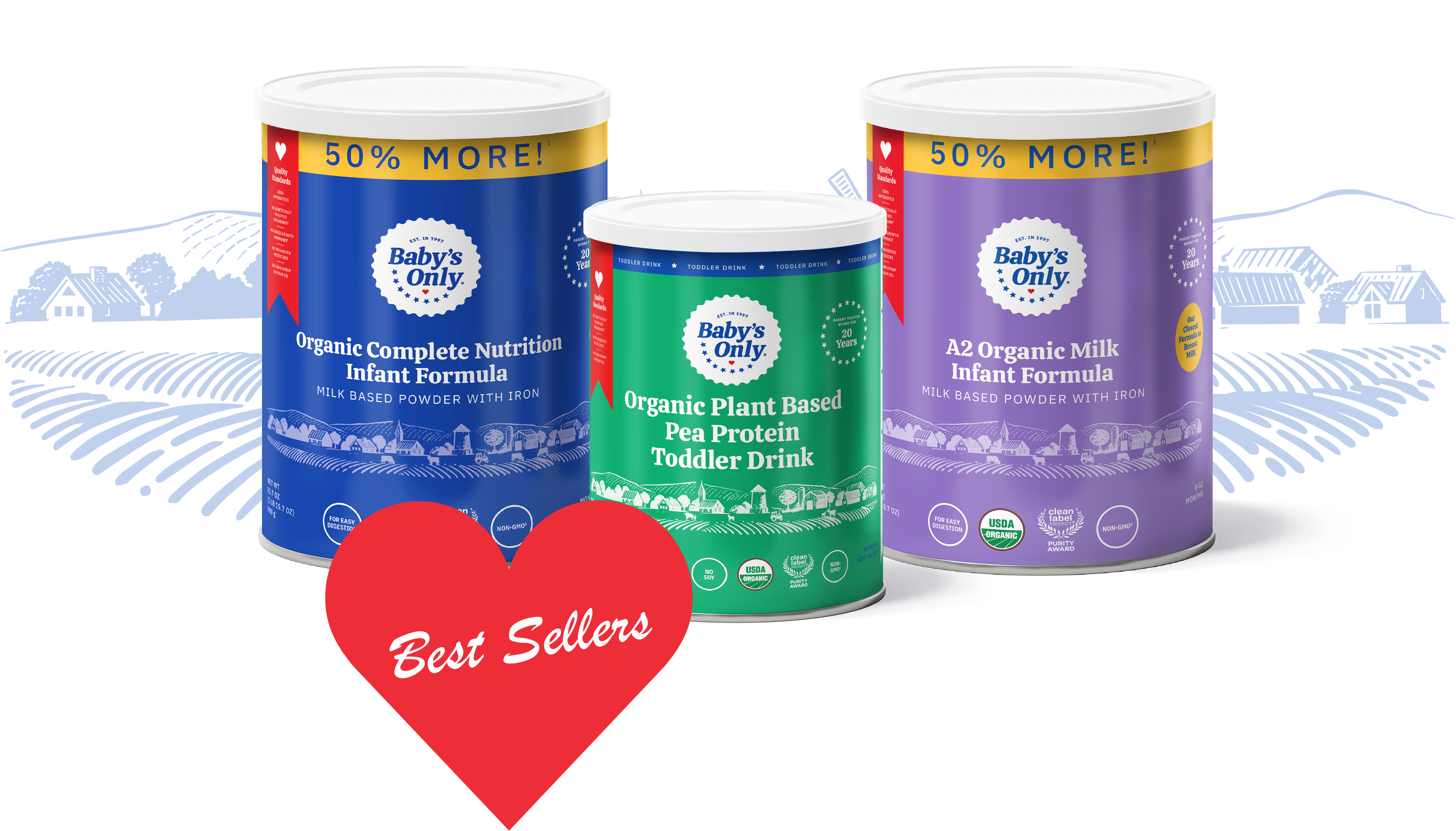
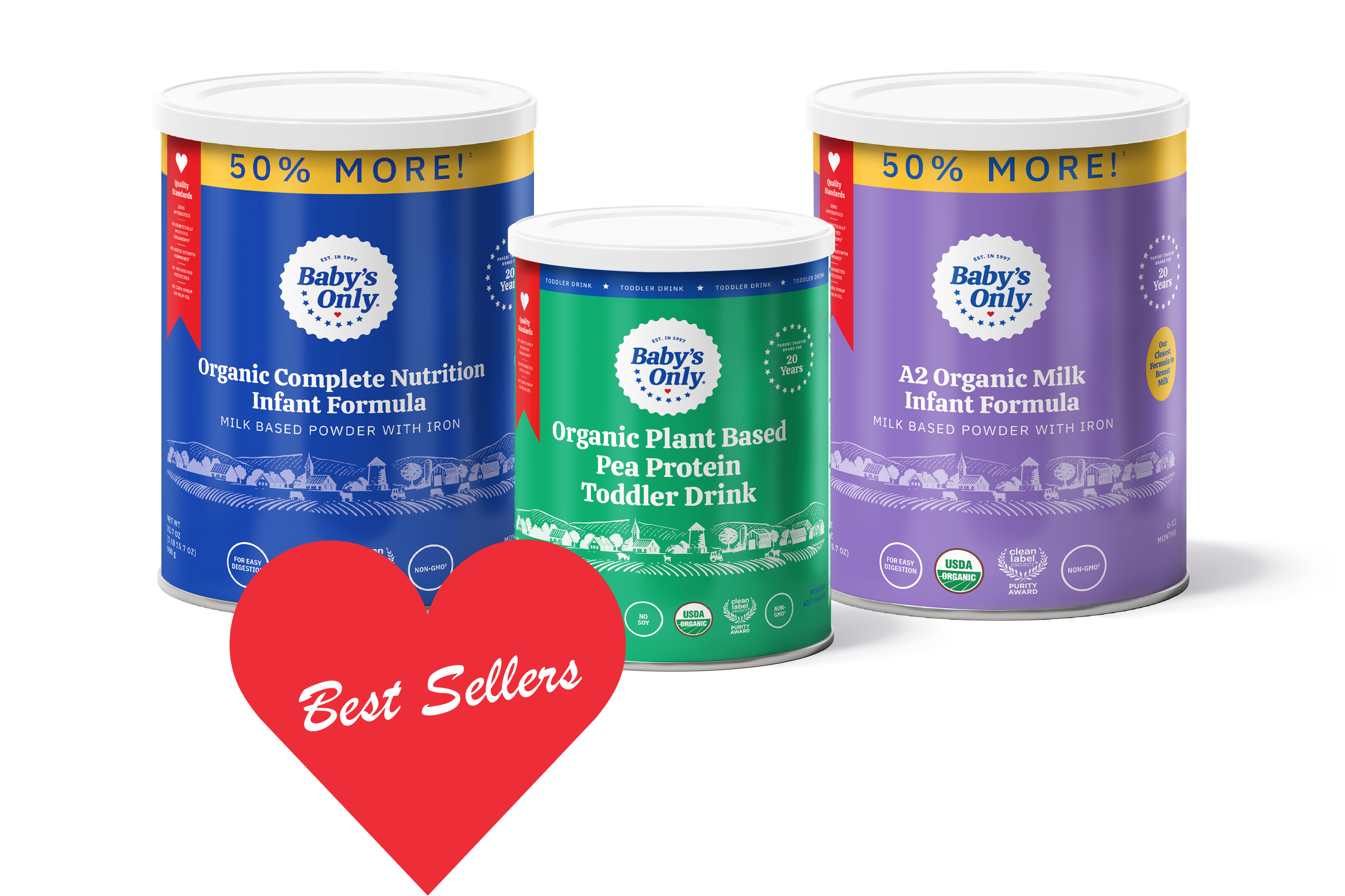
Shop USDA Organic infant formulas
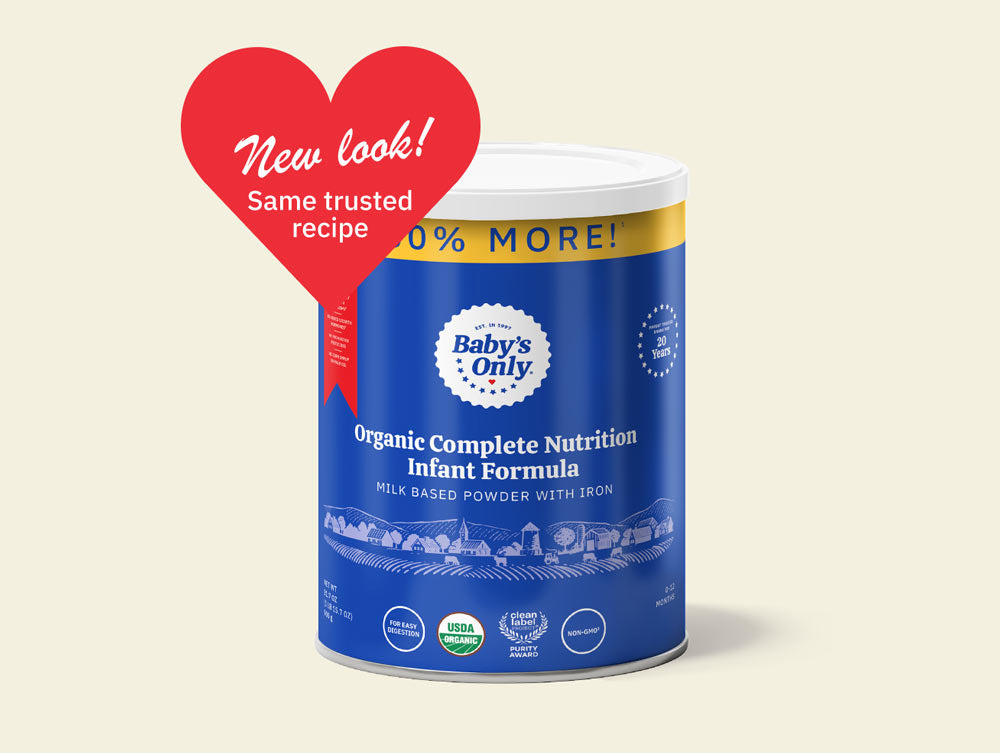

New look, same amazing recipes
In case you missed it, we’ve undergone a little bit of a makeover.




Made right, right here
Clean*, non-GMO1 infant and toddler nutrition—made right here in Ohio.
Our never ever list
- NO DYES
- NO ARTIFICIAL COLORS
- NO PALM OIL
- NO CORN SYRUP
- NO PROHIBITED PESTICIDES
- NO GMOs
*Clean Label Certified. 1Ingredients not genetically engineered.
Available Nationwide
Hitch yours to ours!
Follow us at @babysonlyformulas

